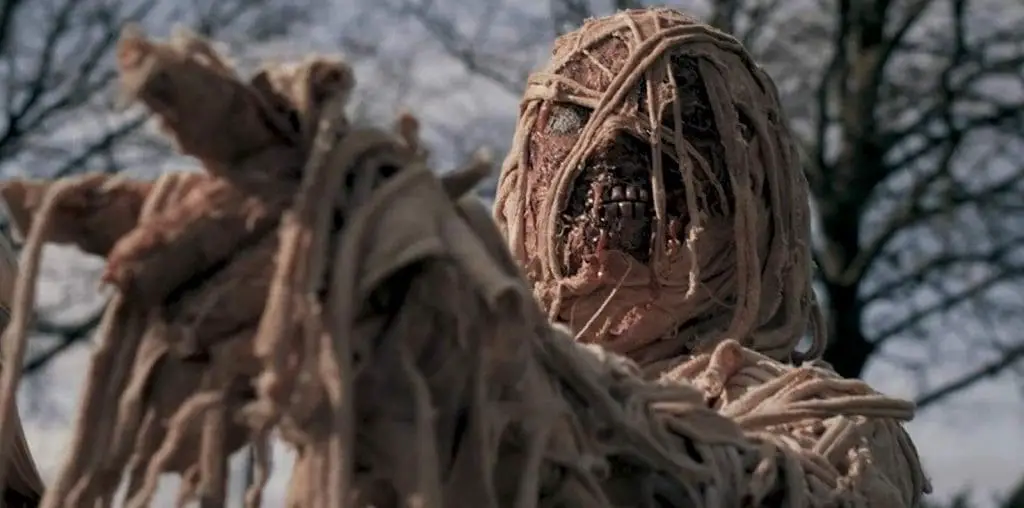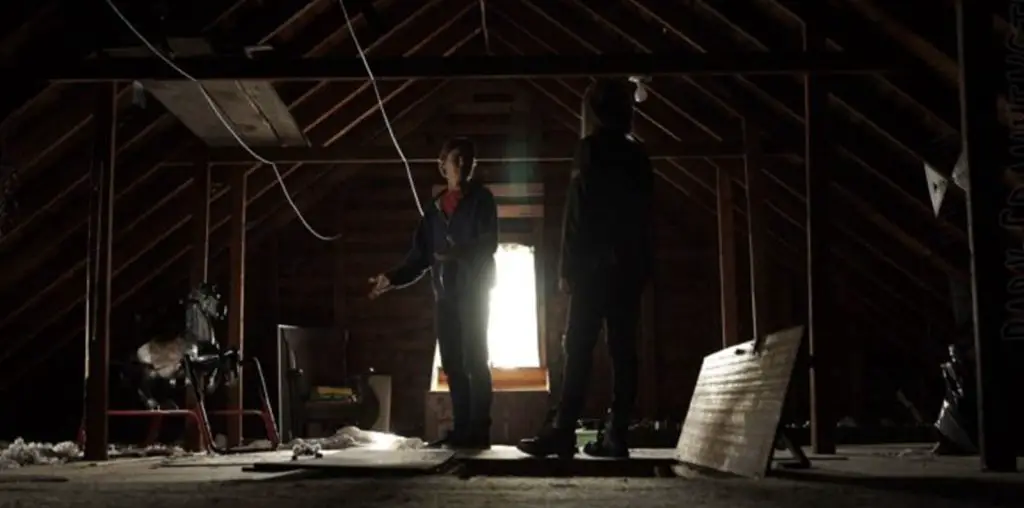
Eddie Marsan is one helluva great British character actor. You recognize him, not because he’s a popular star, but because he’s the one that makes an impression on screen in so many properly understated, subtle ways. Before his current release, he’s only been feature top-billed in “Junkhearts,” a 2011 debut film from Tinge Krishnan that was never released in the United States. He’s been the emotionally and physically challenged American blue collar brother Terry Donovan for several seasons on Liev Schreiber’s powerful Showtime series “Ray Donovan.” Before that he was Inspector Lastrade in the two Robert Downey, Jr., “Sherlock Holmes” films. For fans of the Will Smith superhero “Hancock,” he was the main baddie Red Parker. Gold standard go-to guy.
The build up of 20+ years of acting experience finally landed him a choice leading role. In “Still Life,” he’s John May, an unassuming searcher for lost souls. They’re so lost, most of those who are found don’t even know that anyone except one devoted-to-the-hunt civil servant missed them. Marsan, courtesy of director-writer Uberto Pasolini’s poignant script, has crafted a quietly pensive yet resourceful man, a lifelong bureaucrat content and even inconspicuously proud of his efforts as a funeral officer to help the unclaimed dead (people who die without obvious relations or close friends) with their unclaimed assets. First he gives them decent funerals (his CD collection offers the appropriate music for any religious denomination) and burials, then tries to find relatives willing to take ownership of the often meager belongings of the departed ones. For the dead ends with no points of contact (and there are many, sadly), he’ll at least spread the ashes in an environmentally fitting manner.
Pasolini, a nephew of the famous Italian director Luchino Visconti, paints with small yet visually powerful brush strokes that capture the life of a London everyman set in his routine ways. A spartan apartment in basic white. A small kitchen table with a single chair, covered in a white table cloth, with a white napkin, is where our often unnoticed man sits to eat his meals. His food, which I suspect does not stray much from the canned variety (save for the fruit he is casually peeling), sits alone on a white plate, with a single piece of toast. His one hobby appears to be scrapbooking, collecting photos of the dead people that he has successfully reunited emotionally with loved ones.
In trying to return the property of the deceased—ashes, pets, beads, whatever—to the sons, daughters, parents, friends, the eternally considerate May uses what I would call old school genealogical detective skills—examining old photos, newspaper clippings, old mail, dumpster remains—with a workingman’s diligence. The film is nearly as educational in some respects as it is entertaining. When one of his unknown neighbors, an alcoholic named Billy Stoke, dies, May decides to carry on with one last case, despite an uncaring supervisor (“Funerals are for the living. So if there’s no one there, there’s no one to care.”) informing him that after 22 years his forensic skills are considered redundant in a world of “efficiency savings.” He’s consolidated out of a job.
Pasolini and his cinematographer Stefano Falivene keep the film low key and simple, as the camera often lingers, quite effectively, on a desk with a cored apple, the shadow catching your attention. Or on a street corner with a smoker looking out a second floor window. There’s a grand master feeling to the film’s look. There’s very little camera movement or flashy editing. Tracking shots are kept to a minimum, the better to focus on the acting and reacting. When May’s boss is canning him, the office precise and uncluttered (as is most of the film), the sitting supervisor and the standing woman taking over his responsibilities face the camera. Her hands are folded in front of her. Her smile is forced as the uncaring manager (Andrew Buchan) chastises May’s slowness. The soon to be out of work employee, on the other side of the room, nods silently, accepting his fate, yet somehow happy, in his own expressionless way, that he has three days to examine the Stoke case. After telling a few white lies to extend his stay, he does find Kelly, Stoke’s daughter (“Downton Abbey’s” Joanne Froggatt, fresh off a Golden Globes win for that series), whose turn here is short and sweet.
With no family of his own for repose, he seeks out others to find and provide solace. As the busy traffic of life passes John May by, it’s nice to get to know there are real gents in the world like him. “Still Life” offers up much bittersweet comfort and joy as it reaches a most unexpected close.

